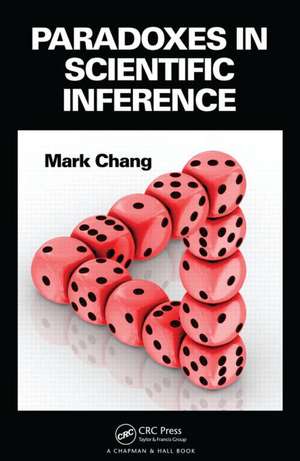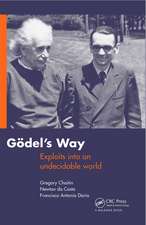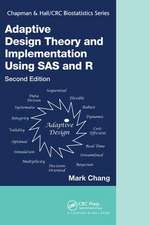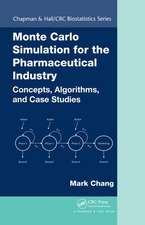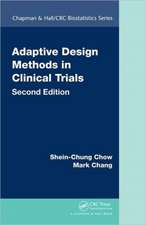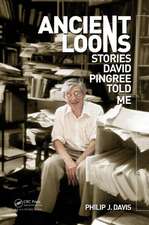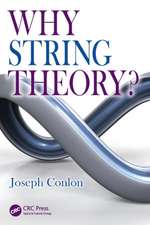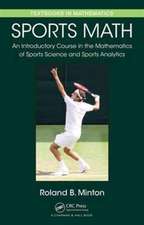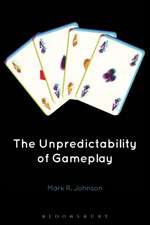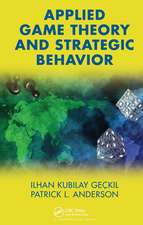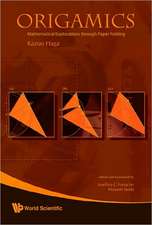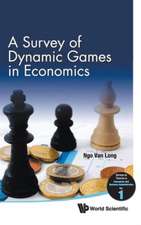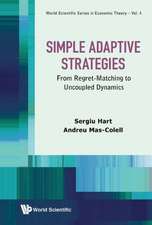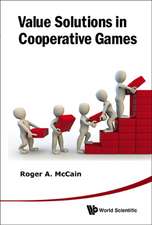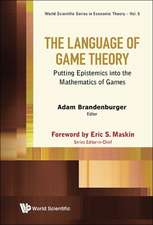Paradoxes in Scientific Inference
Autor Mark Changen Limba Engleză Paperback – 15 oct 2012
Paradoxes in Scientific Inference analyzes paradoxes from many different perspectives: statistics, mathematics, philosophy, science, artificial intelligence, and more. The book elaborates on findings and reaches new and exciting conclusions. It challenges your knowledge, intuition, and conventional wisdom, compelling you to adjust your way of thinking. Ultimately, you will learn effective scientific inference through studying the paradoxes.
Preț: 333.80 lei
Nou
Puncte Express: 501
Preț estimativ în valută:
63.88€ • 66.45$ • 52.74£
63.88€ • 66.45$ • 52.74£
Carte disponibilă
Livrare economică 24 martie-07 aprilie
Livrare express 08-14 martie pentru 31.80 lei
Preluare comenzi: 021 569.72.76
Specificații
ISBN-13: 9781466509863
ISBN-10: 1466509864
Pagini: 292
Ilustrații: 45 b/w images, 8 tables and N/A CR BOok
Dimensiuni: 156 x 234 x 20 mm
Greutate: 0.43 kg
Ediția:New.
Editura: CRC Press
Colecția Chapman and Hall/CRC
ISBN-10: 1466509864
Pagini: 292
Ilustrații: 45 b/w images, 8 tables and N/A CR BOok
Dimensiuni: 156 x 234 x 20 mm
Greutate: 0.43 kg
Ediția:New.
Editura: CRC Press
Colecția Chapman and Hall/CRC
Public țintă
Professional Practice & DevelopmentCuprins
The Joy of Paradoxes: A Random Walk. Mathematical and Plausible Reasoning. Statistical Measures of Scientific Evidence. Scientific Principles and Inferences. Artificial Intelligence. Appendix. Bibliography. Index.
Notă biografică
Mark Chang is vice president of biometrics at AMAG Pharmaceuticals and an adjunct professor at Boston University. Dr. Chang is a co-founder of the International Society for Biopharmaceutical Statistics and an elected fellow of the American Statistical Association. He serves on the editorial boards of several statistical journals and has published five books on biostatistics and clinical trial designs.
Recenzii
"… an excellent book discussing the principles of scientific inference for readers with various backgrounds. Paradoxes are seen sporadically in different occasions; a systematic review in this book may reshape the reader’s brain, as the author warns, and, at the very least, provides a fresh view of scientific philosophy."
—Gang Li, Journal of Biopharmaceutical Statistics, 24, 2014
"This is a very, very entertaining book. It is extremely well written, extremely clear, and very highly recommended."
—Norman R. Draper, International Statistical Review (2013), 81
"… the brisk pace makes the pages turn easily and the book is fun …"
—Sandra Z. Keith, MAA Reviews, April 2013
—Gang Li, Journal of Biopharmaceutical Statistics, 24, 2014
"This is a very, very entertaining book. It is extremely well written, extremely clear, and very highly recommended."
—Norman R. Draper, International Statistical Review (2013), 81
"… the brisk pace makes the pages turn easily and the book is fun …"
—Sandra Z. Keith, MAA Reviews, April 2013
Descriere
The paradoxology of scientific inference refers to the study of the nature of scientific inference and evidence through controversies or, more precisely, paradoxes. This book analyzes paradoxes from many different perspectives, such as statistics, mathematics, philosophy, science, and artificial intelligence. It compares various quantitative methods of evidence measures, including frequentist hypothesis testing, likelihood, and Bayesian methods. The text elaborates on recent findings to reach new and exciting conclusions. Other topics covered include probability, plausible reasoning, multiplicity, and inferences.
